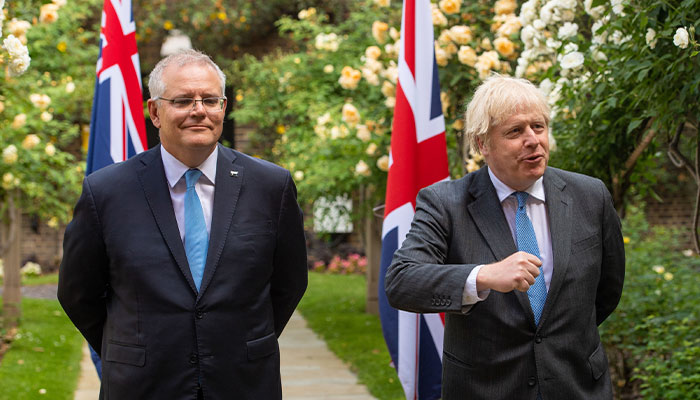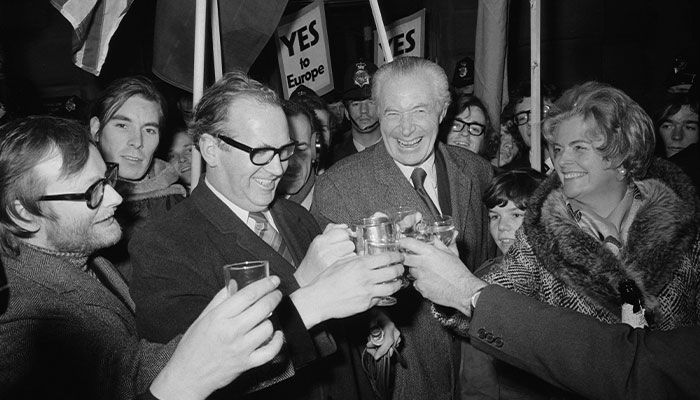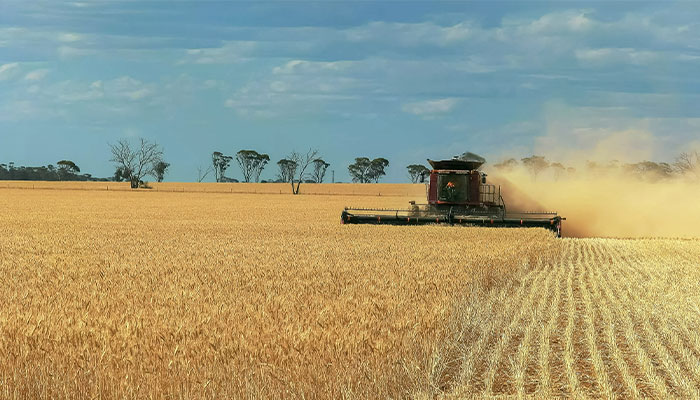The Australia-United Kingdom 'in-principle' free trade agreement (FTA) has been hailed by the UK government on two post-Brexit counts: as the first FTA that has been negotiated from scratch, as well as the first major trade deal. These statements echo one of the main arguments for Brexit – reclaiming the sovereignty of the UK and it being able to chart its own course, especially on the world stage.

Deal makers: The Australian and British prime ministers Scott Morrison and Boris Johnson after agreeing the broad terms of the free trade deal between their countries.
Australia’s historical and cultural connection to the UK, coupled with the timing of the trade deal, seem to have worked in Australia’s favour with analysts on both sides claiming that Australia receives the better end of the deal.
However, if we are to assume that both players are rational agents who aim to maximise their welfare, there certainly must be more to be explored and understood about the FTA’s supposed benefits and costs.
Time-past and time-future provide lenses for unpacking the dynamic and long-term benefits to both parties.
Breaking down EU trade barriers
While Australia has a history dating back thousands of years, modern Australia was heavily influenced by British colonisation from 1788 to 1901. When the six former colonies became Australia’s six states and formed a federation in 1901, Australia kept some of its ties to the UK. Before the UK entered the European Common Market in 1973, it is not surprising that the UK was Australia’s largest trading market.

Times a changing: British politicians and the public celebrate the UK's admission to the European Common Market in 1973, a move that threw up trade barriers between the UK and Australia.
In joining the European Common Market and progressively becoming more engrained in the European Union (EU), the UK created trade barriers between itself and Australia, via the EU – tariffs, quotas, and standards-based barriers – that prevented Australian exporters from trading freely with the UK. By 2018, the UK had moved to being Australia’s eighth-largest trading market.
This agreement will begin to undo the trade barriers that the UK effectively had against Australia via the EU. On the other hand, in the past four decades, the Australian economy has liberalised rapidly, and has far fewer barriers towards UK firms and industries to begin with.
One could argue that the UK has benefited from Australia’s more liberalised approach to UK exports for decades, while the UK has harmed Australia during that same period.
While both countries are set to gain on a macro-economic level, the UK’s gains in this trade deal will be fewer because the UK will experience diminishing marginal returns, given that the Australian economy is already very open to the UK. At present, the gain to Australia is greater, as Australia is only at the beginning of the road to free trade with the UK as the UK has far more barriers to lift – and hence the seemingly large potential gain to Australia.
One could argue that the UK has benefited from Australia’s more liberalised approach to UK exports for decades, while the UK has harmed Australia during that same period via its trade barriers.
Mobility of labour and the tyranny of distance
In general, a bilateral FTA would benefit both nations on a macro-economic level – the total surplus, the size of the pie, gets larger, and production and consumption increases on both sides of the deal. This assumes mobility of goods, mobility of services, and mobility of labour.
On this latter point, the mobility of labour, the FTA will be drastically different to the pre-Brexit UK-EU experience. The EU is an economic and political union. Citizens are free to move and work across EU nations, which further enhances the gains from trade to all parties.
- United by anger: Why Japanese people are against the Tokyo Olympics
- Stress-busting tips for HSC students facing lockdown learning
The Australia-UK free FTA simply has a new provision increasing the maximum age for working holiday visas from 30 years to 35 years, and extending the period of this visa from two years to three years – hardly the labour mobility for the UK of the pre-Brexit days.
Professionals on both sides of the deal are set to benefit via an agreement to mutually recognise each others’ professional qualifications – but for anyone over 35 years of age, one would have to permanently migrate to experience this benefit of increased labour mobility.
Thus, when comparing the benefit to the UK of the EU-UK deal, versus the Australia-UK deal, the extent to how far the pie can be grown is limited by virtue of the lack of labour mobility – which is also of course hindered by the lack of geographical proximity of Australia compared to the EU. This geographical distance eats into any potential benefits from free trade due to the increase in transportation and other transaction costs.
Manufacturing v agriculture
Without even considering geography or history, Australia will gain more from any trade deal with the UK because the UK has a larger population – 68 million versus Australia’s 26 million. This means a larger market for Australian exporters. It also means economies of scale for British industries that Australia can only dream of, or has tried and failed at miserably.

Winner: Australia's agricultural sector is set to benefit more than the UK's, as a new market opens for cheaper Australian produce.
Economies of scale reduce the cost of production, which can make or break the commercial viability of an industry. Take the car production industry in Australia, where several players have ceased production in recent years. Effectively, Australia doesn’t have large manufacturing industries and products to sell to the UK, FTA or otherwise, while the UK does. This is why much has been discussed about UK-manufactured cars expanding their market into Australia – benefitting British manufacturers and Australian consumers.
As with any bilateral FTA, while the net macro-economic gain is positive, there will be short-term micro-economic losses, depending on the sector. While British manufacturers of cars may gain under the FTA, British farmers may lose in the short run. This would explain the UK farming sector’s displeasure in the in-principle FTA.
Australia’s agricultural sector has not experienced the protectionist policies that EU countries have enjoyed for decades. Pre-Brexit, the UK benefited from the EU’s Common Agricultural Policy (CAP) which at €54 billion per annum is approximately a third of the EU budget. As Australian farmers are not as protected as EU farmers, they have had incentives to innovate and reduce their costs of production.
The UK government is aware of the short-term negative impact to UK farmers, and they have ensured that the sector experiences the shock gradually.
Agriculture is a sector where Australia does have economies of scale and a comparative advantage due, in part, to its abundance of arable land. Unsurprisingly, Australia is a net exporter of agricultural products. Thus, on balance, Australia’s agricultural sector is set to benefit more than the UK’s, as a new market opens for cheaper Australian produce.
This imbalance would explain why the terms negotiated in the deal, even at the early in-principle stage, outline a staggered and staged removal of agricultural trade barriers, as well as specific details about the safety nets in place for British farmers when certain thresholds of import volumes are exceeded.
The UK government is aware of the short-term negative impact to UK farmers, and they have ensured that the sector experiences the shock gradually and thus has time to adapt in the long run.
A sign of things to come for post-Brexit UK
With free trade, the short-term negative impact on certain sectors will disappear in the long run, provided the conditions of a free market and free labour mobility are met. As the UK agricultural sector opens to cheaper imports, the sector will be incentivised to innovate and adapt. Non-productive resources, including labour, would move out of the sector into more productive sectors, thereby increasing the size of the macro-economy, and the total size of the pie in the long run.

Analysis: Dr Prashan Karunaratne (pictured) says the short-term gain of the FTA will be greater for Australia.
In a post-Brexit world however, labour mobility is limited, and the Australia-UK trade deal does not go anywhere near to replicating the EU’s labour mobility.
On balance, due to the unique historical, geographical, and economical background of the Australia-UK relationship, the short-term gain to Australia seems to outweigh the short-term gain to the UK. But perhaps, looking into the future, there is another angle from which to analyse this deal.
The political angle needs to be considered for the UK government, which may help explain why this rational agent has wilfully entered such a deal.
The UK government is not looking at this FTA in isolation, but as a signal to the UK of the free trade deals to come. The current government needs to provide evidence to its population of the very benefit that was highlighted as the advantage of Brexit. This free trade deal is that signal.
Dr Prashan Karunaratne is a Senior Lecturer in the Department of Actuarial Studies and Business Analytics at Macquarie Business School.
This story has been co-published with fmcg CEO Magazine in the UK.



